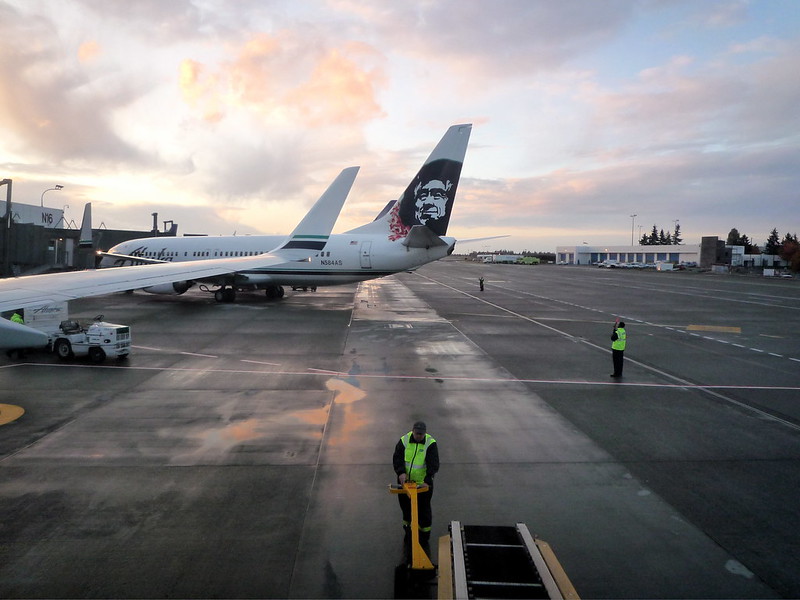Alaska Airlines Enlists Accenture for Technology Overhaul After Disruptive Outages
Alaska Airlines has taken a decisive step toward addressing its recent technological challenges by hiring global consulting powerhouse Accenture to conduct a comprehensive audit of its IT systems. This strategic move comes in the wake of two significant technology failures that grounded flights and disrupted tens of thousands of travelers’ plans. The Seattle-based carrier, known for its customer-focused approach and West Coast presence, is now facing a critical moment as it works to rebuild trust and ensure its technological infrastructure can support reliable operations. The audit will examine everything from the airline’s core systems to its operational standards and processes, leaving no digital stone unturned in the quest for greater stability.
The urgency behind this technology review became painfully apparent last week when Alaska suffered an extensive outage that grounded flights for eight hours straight. The impact was both immediate and far-reaching—more than 49,000 passengers had their travel plans thrown into disarray as over 400 flights were canceled across both Alaska Airlines and its regional subsidiary Horizon Air. The situation was so severe that the airline was forced to postpone its scheduled quarterly earnings call, an unusual move that underscores the financial and operational significance of the failure. While Alaska has been quick to clarify that the outage stemmed from a failure at its primary data center rather than a cybersecurity incident, the explanation does little to soften the blow for affected travelers who found themselves stranded at airports across the network.
This recent technology failure wasn’t an isolated incident for Alaska, which makes the airline’s response all the more crucial. A separate outage in July, attributed to the failure of “critical hardware” within the airline’s data centers, had already created significant financial implications for the carrier. That earlier incident is expected to reduce earnings by approximately $0.10 per share—translating to roughly $12 million in lost revenue. The compounding effect of these outages has clearly reached a tipping point, prompting the airline to take more substantive action than ever before. In a regulatory filing, Alaska revealed it doesn’t plan to reschedule its third-quarter earnings call, instead promising updated financial guidance in early December once it has fully assessed the economic impact of these technological disruptions. This measured approach suggests the company is taking time to understand the full scope of the problem before making further commitments to investors.
The airline has been quick to emphasize that it hasn’t been standing still when it comes to technology investments. According to company statements, Alaska has increased its IT infrastructure spending by nearly 80% since 2019—a substantial commitment that makes these ongoing issues all the more perplexing and frustrating. These investments have reportedly focused on building redundant data centers and accelerating the migration of customer-facing systems to cloud platforms. The airline currently operates what technology professionals call a hybrid infrastructure, which blends traditional on-premises data centers with third-party cloud services. This approach began taking shape around 2015 when Alaska started shifting some of its workloads to Microsoft Azure while maintaining its own data centers for mission-critical operations, according to previous statements from Vikram Baskaran, Alaska’s vice president of IT.
Ironically, even as Alaska works to address its internal technology challenges, the airline faced yet another disruption earlier this week—though this time, the finger pointed elsewhere. The company attributed this most recent issue to an outage within Microsoft’s Azure cloud platform, which temporarily disrupted operations for numerous organizations worldwide, including Alaska’s recently acquired subsidiary Hawaiian Airlines. This external dependency highlights the complex web of technological relationships that modern airlines must navigate, where even the most robust internal systems remain vulnerable to failures in third-party services. It also underscores the challenging balancing act between maintaining control over critical infrastructure and leveraging the scalability and expertise of major cloud providers.
As Alaska Airlines charts its course forward, the stakes couldn’t be higher. The airline industry operates on razor-thin margins where operational reliability directly impacts both financial performance and customer loyalty. Every canceled flight represents not just immediate revenue loss but potential long-term damage to the brand as frustrated passengers may choose competitors for future travel. The engagement of Accenture—a consulting firm with deep expertise in digital transformation—signals Alaska’s recognition that band-aid solutions won’t suffice. The airline must fundamentally reassess how it builds, maintains, and evolves its technology ecosystem in an era where passengers expect seamless digital experiences from booking to boarding. For Alaska’s leadership team, employees, and shareholders alike, the coming months will be a critical period of reflection, rebuilding, and reinvention as the carrier works to ensure its technology infrastructure can deliver the reliability its customers deserve.















